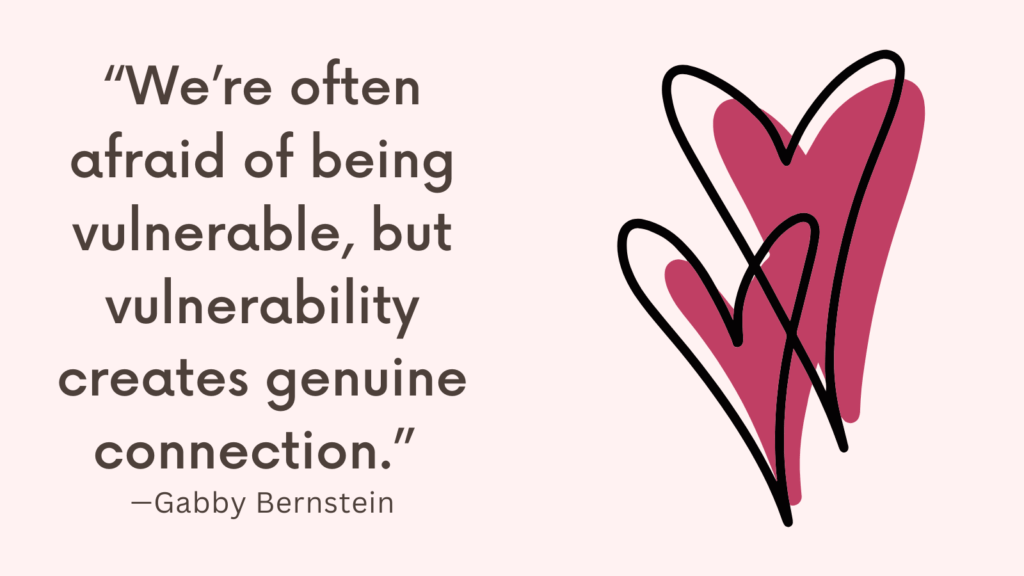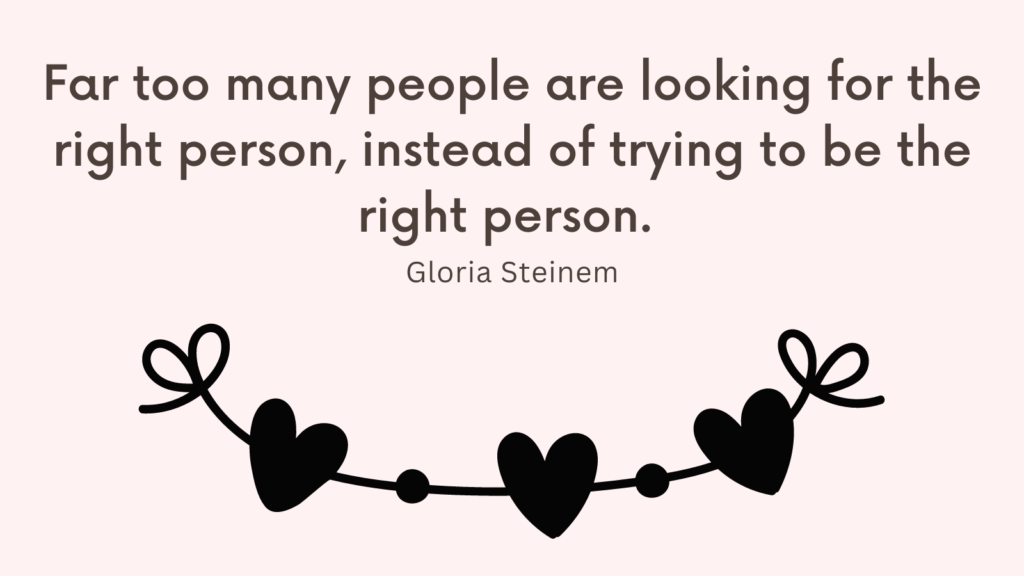In this post, you’re going to learn all about fear of engulfment.
What Is Fear of Engulfment?
Fear of engulfment, also known as fear of intimacy or fear of being overwhelmed, is a psychological term used to describe an intense fear or anxiety about becoming too close or attached to others.
Individuals who experience this fear often have difficulties forming and maintaining deep, intimate relationships.
This fear typically stems from past experiences of feeling engulfed or overwhelmed by a significant person in their life, such as a parent or caregiver.
It may have been caused by overbearing or controlling behavior, intrusions of personal boundaries, emotional smothering, or a loss of autonomy and independence.
As a result, these individuals may develop a strong desire to maintain their sense of self and avoid being consumed or controlled by others.
Overcoming fear of engulfment often requires therapy or counseling to explore and address underlying causes.
Related: Emotional Intimacy Test (+13 Tips On How To Increase Emotional Intimacy In A Relationship?)
Symptoms of Fear of Engulfment
Symptoms of fear of engulfment can vary among individuals but may include:
1. Avoiding close relationships: People with this fear may consciously or unconsciously distance themselves from others, avoiding deep emotional connections or commitment.
2. Fear of losing independence: They may prioritize their independence and individuality above all else, fearing that being close to someone will make them lose their sense of self.
3. Anxiety or discomfort in intimacy: Close emotional or physical proximity can trigger feelings of suffocation or panic, leading to avoidance or withdrawal from intimate situations.
4. Difficulty setting boundaries: Individuals may struggle to establish and assert their own personal boundaries due to the fear of being engulfed. They may feel insecure about expressing their needs and preferences for fear of alienating others.
5. Preoccupation with self-protection: There may be a constant vigilance to protect oneself from potential engulfment, leading to hypervigilance or a guarded demeanor.
Related: Is It ROCD Or Am I Not In Love? Top 4 Powerful Ways to Overcome Relationship Anxiety And ROCD
What Causes The Fear of Engulfment?
The fear of engulfment can be caused by a variety of factors. Here are some common causes:
1. Early childhood experiences: Individuals who have experienced overbearing, controlling, or intrusive caregivers during their early years may develop a fear of engulfment. This can result from a lack of boundaries or autonomy and a sense of being overwhelmed by others.
2. Previous traumas: Traumatic experiences, such as physical or emotional abuse, can lead to a fear of engulfment. These experiences can create a deep-seated fear of being overwhelmed or controlled by others.
3. Insecure attachment styles: Individuals with insecure attachment styles, such as anxious-preoccupied or dismissive-avoidant, may be more prone to experiencing the fear of engulfment. These attachment styles often stem from inconsistent or unstable caregiver relationships.
4. Codependency patterns: Codependent individuals tend to prioritize others’ needs over their own, leading to a fear of losing their sense of self in relationships. Fear of engulfment can manifest as a defense mechanism against becoming too intertwined with another person.
5. Personal boundaries: People who struggle with establishing and maintaining healthy personal boundaries may develop a fear of engulfment as they fear their individuality and autonomy will be compromised.
6. Cultural or societal factors: Cultural or societal norms that emphasize collectivism or enmeshment within relationships can contribute to the fear of engulfment. Pressure to conform or meet certain expectations may cause individuals to fear losing their identity.
7. Cognitive factors: Certain cognitive patterns, such as negative beliefs about oneself or a tendency to catastrophize, can contribute to the fear of engulfment. These thought patterns influence how individuals perceive and interpret their interactions with others.
It’s important to note that the causes of the fear of engulfment can vary from person to person, and it may be influenced by a combination of these factors.
Related: Top 10 Pros And Cons Of A Relationship
How to Overcome Fear of Engulfment?
Overcoming the fear of engulfment in friendships requires a combination of self-reflection, self-compassion, and gradual exposure to build trust and establish healthy boundaries. Here are some suggestions that may help:
1. Explore the root causes
Reflect on your past experiences or relationships that may have contributed to your fear of engulfment.
Understanding the origins of your fear can provide insights into its triggers and help you challenge any distorted beliefs you may have.
Related: How To Heal Abandonment Issues? Top 15 Powerful Strategies For Fear of Abandonment Healing
2. Challenge negative beliefs
We often hold irrational beliefs or assumptions about relationships that perpetuate our fears.
Identify these beliefs and question their validity.
Replace them with more realistic and balanced thoughts.
For example, instead of believing that all close friendships will lead to loss of autonomy, reframe it as recognizing that healthy friendships allow for both independence and interdependence.
3. Practice self-compassion
It’s important to be gentle and kind to yourself as you work through your fear.
Acknowledge that it is a natural response based on your past experiences, and remind yourself that you deserve fulfilling and healthy friendships.
Treat yourself with the same kindness and understanding you would offer a close friend.
Related: Abandonment Issues Quiz: Do I Have Abandonment Issues?
4. Gradual exposure
Gradually expose yourself to situations where you incrementally increase the level of closeness in your friendships.
Start by opening up about non-threatening topics and gradually share more personal thoughts and emotions as you feel comfortable.
This gradual approach helps build trust over time.
5. Establish and communicate boundaries
Developing clear boundaries is crucial in managing the fear of engulfment.
Clearly communicate your needs to your friends and assertively express your limits.
This allows you to maintain a sense of autonomy and ensures that your friends understand and respect your boundaries.
Related: Best 10 Books On Abandonment
6. Seek support from a professional
Consider seeking the help of a psychologist who can provide you with specialized guidance and support tailored to your specific needs.
They can help you navigate through the underlying causes of your fear, develop coping strategies, and offer techniques such as cognitive-behavioral therapy (CBT) that effectively address these concerns.

Conclusion
Overcoming the fear of engulfment takes time, patience, and effort.
Be compassionate with yourself throughout the process and celebrate small victories along the way



